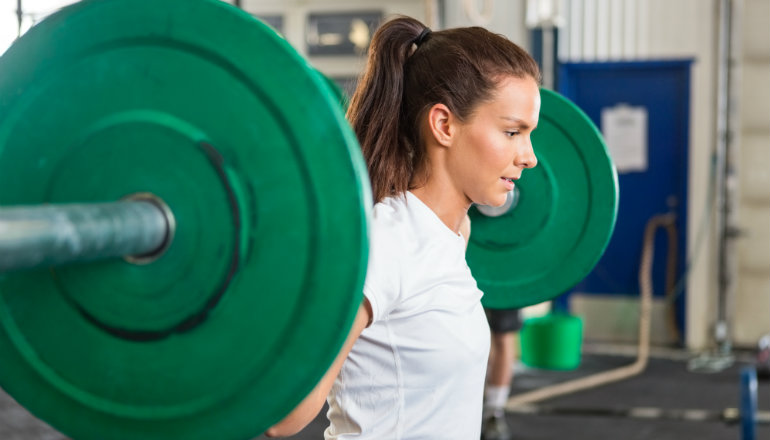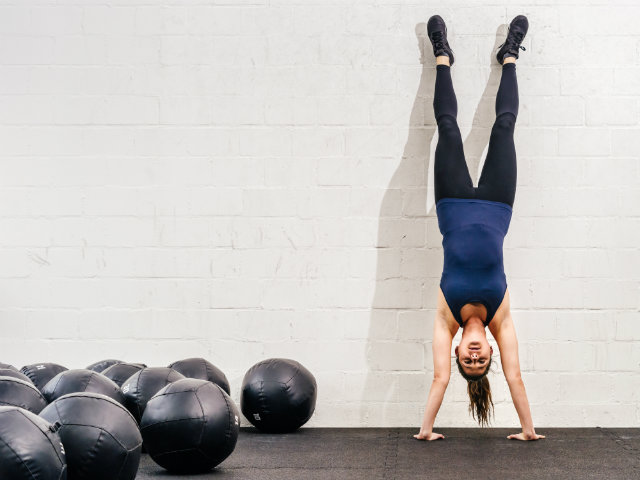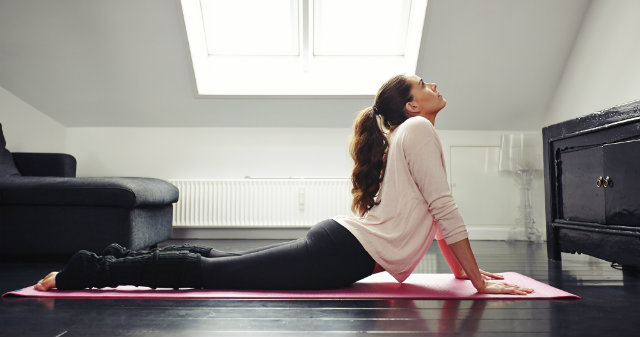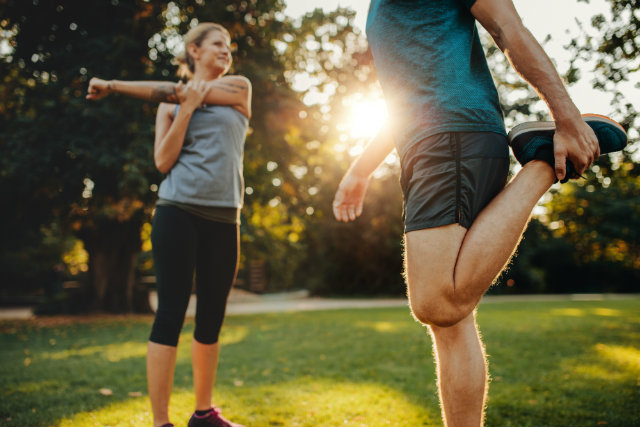 Reading Time: 8 minutes
Reading Time: 8 minutesBenjamin Franklin famously said, “By failing to prepare, you are preparing to fail.” The statement resonates with many of us because we get that preparation is the first step in starting anything. In beginning a new chapter in fitness, this is most certainly the case.
But how to prepare is a different story. After all, you can have the best coach and a membership at the best gym in town, but it’s up to you to execute a training plan and get your reps in. Without organization, a solid plan, and a can-do attitude, lasting success will remain elusive.
For many, preparation simply means doing their due diligence — asking for referrals, doing online research, and getting out the checkbook. With today’s technology, such preparation is a pretty seamless process. In a matter of minutes, you can locate the top-rated trainer or newest fitness studio in your area. If you want to know the most effective calorie-burn workout, popular yoga class, or highly rated exercise program, the answers to your inquiries are a few clicks away.
But there are inherent problems with such an approach. Namely, doing research about what fitness program to do, what gear to buy, or what person to hire leaves out the most important variable in the process — you!
Indeed, Yelp will help you effectively rate just about anything, but what about the Yelp review for you? Who is there to rate you as to whether you have what it takes to succeed?
Of course, the short answer is that you are there for you. But nowadays, defining your role in the equation and accepting responsibility for your results isn’t always top of mind. We live in a time of instant gratification and the norm is to look everywhere for answers, except within. We have countless tools to assist in surveying our options, but far fewer tools that assist in the introspective self-assessment that is fundamental for a successful health and wellness plan.
In the long run, your results will be determined by your effort, approach, and mindset. So before you jump on the latest Internet-driven fad, here are six questions to ask yourself in order to get the best results with your fitness training.
1. Is It the Right Time for You?
For years, I tried to sell others on the importance of making time for fitness. After all, some of the busiest people on the planet make time to work out. But let’s face it, if you need to be sold that making time for fitness makes sense, then it probably doesn’t for you.
And frankly, there are times in life when it might not make sense. Family emergencies, health issues/injury, and some work scenarios might be too great of a barrier to entry in starting up a new fitness routine. Besides, there are lots of ways to focus on health. Fitness just happens to be one of them.
2. Do You Have a Sensible Plan?
Maybe it’s the endorphins or competitive dynamic of fitness, but some are so eager to race toward their goal that they start out of the gate too quickly. In doing so, many are woefully unprepared physically and emotionally for the long haul. Statistics show the majority of fitness participants drop out after the first six months. Lack of preparation and/or having a proper plan is a big reason why.
Starting a new chapter in fitness means mapping out a plan — starting with a long-term goal and working backward. That map should include your goals, timing, structure, and the physical and emotional variables necessary to execute each step. Planning also means getting ready for the day’s work — the right gear, a proper warm-up, and proper fueling on hand. “Fueling,” or your nutrition and hydration, is perhaps the most important variable in your outcomes.
Whether your goals are aesthetic, functional, or health related, a sound plan will make or break your fitness outcomes.
3. Do You Have a Community to Support You?
You can buy the top running shoes on the market and hire the best nutritionist in the country, but those fancy shoes might weigh you down if you can’t get your family or friends to jump on board the wellness train in support.
Having a workout buddy or recruiting your partner to exercise with you can help immensely when it comes to staying on track, but not everyone has support built in to his or her family dynamic. Fortunately, there are plenty of mentors, role models, and coaches that can fill the void if your friends and family aren’t willing or able.
In assessing proper support, finding people who tell you what you need to hear versus what you want to hear is paramount. Effective support is the perfect blend of those that demand your best yet allow you to be authentic and vulnerable. In finding a mentor or coach, the top qualities to look for are empathy, great listening skills, and a passion for the craft.
4. Do You Know How to Assess Yourself and Your Training?
Many approach exercise the way hamsters use wheels. Such methodology is “preparing to fail.” The fact is, your body is not meant to simply run hard on a treadmill or lift heavy weights every single day. But beyond just varying your routine, you need to properly assess and plan for what your body needs on each particular day based on self-analysis. The technical term for this is called fluid periodization.
Many in the field of sports and exercise use the concept of periodization to organize their training on a weekly, monthly, or quarterly basis. Peer-reviewed literature substantiates the effectiveness of periodized training over more randomized workouts.
The concept of “fluid” periodization takes such training a step further to assess what your body needs on a particular day. Essentially, fluid periodization provides you with the right exercise program based on your daily needs, physiological capacity, and limitations. Research in the field has shown that athletes using fluid periodization adapt faster and greater than those who use a more traditional method of periodization.
There are several ways to design a fluid periodization protocol or algorithm to determine your readiness to train. Specifically, heart rate information such as resting heart rate (RHR), heart rate variability (HRV), and/or exercise recovery heart rate are good places to start. Sleep data and blood pressure are also essential variables. Some wearables provide a fairly accurate assessment of your body’s responsiveness to exercise and will also help in determining your body’s readiness to exercise.
Of course, not everyone is going to crunch data to determine their daily workouts. A basic assessment of your soreness, sleep, and rate of perceived exertion from your most recent exercise could suffice in evaluating the best type of workout for the day in front of you. If you are sick or injured, then following fluid periodization simply means you adjust your training to another day. But you do so intentionally, not haphazardly.
5. Did You Include Recovery in Your Plan?
Even if you’re properly planned and trained, failing to rest can derail your success with fitness. Athletes know that sports recovery isn’t just something you do when you’re sore, banged up, or injured; recovery is a part of training.
In planning for a new exercise program, you should do you due diligence in planning for your how you’ll most effectively recover. Topping the list is sleep, which is highly correlated not just to health and optimal results, but also to avoiding sickness and injury. Getting proper hydration and reducing inflammation are also critical.
Effective modalities of recovery include contrast with heat and ice, sports massage, infrared sauna, sensory deprivation, stretching, and the list goes on.
6. Are You Mentally Ready to Do This?
Emotional preparation is the most overlooked component of an effective fitness plan. One of the best examples I’ve experienced in mindset preparedness is in my experience in and around the martial arts.
One instructor I know uses the analogy of an hourglass. At the wide part or top of the hourglass is all the stuff that makes up our lives — busy schedules, work, family, errands to run, and so forth. As you prepare to begin a training session, the hourglass narrows to only the essential elements — breath, situational awareness, and being at one with your mind and body. As you bow out of class and shower, or change and take your wraps off, the hourglass fills back up in the bottom part again as you prepare to go back into the world.
Things like yoga and the martial arts have ritual baked in to their process, which makes the hourglass idea easily digestible. In a traditional fitness practice, you may need to establish your own routine of mindfulness or breath work before and after exercise sessions to transition effectively, and therefore perform optimally in both scenarios.
Rate Yourself for Fitness Success
In fitness and wellness, you could contend that proper preparation is as important as the execution itself. Thorough preparation is like pouring the right foundation when building your dream house. Ultimately, success with fitness comes down to timing, support, mindfulness, and a good plan.
More than anything though, effective planning comes down to the ability to evaluate yourself honestly.
If you were to write an honest Yelp review for your approach to exercise — your attitude, preparedness, approach, and physical readiness — what would it say? Such introspection isn’t always easy, but it’s absolutely necessary. After all, by far the most important variable in finding lasting success in exercise is you.














